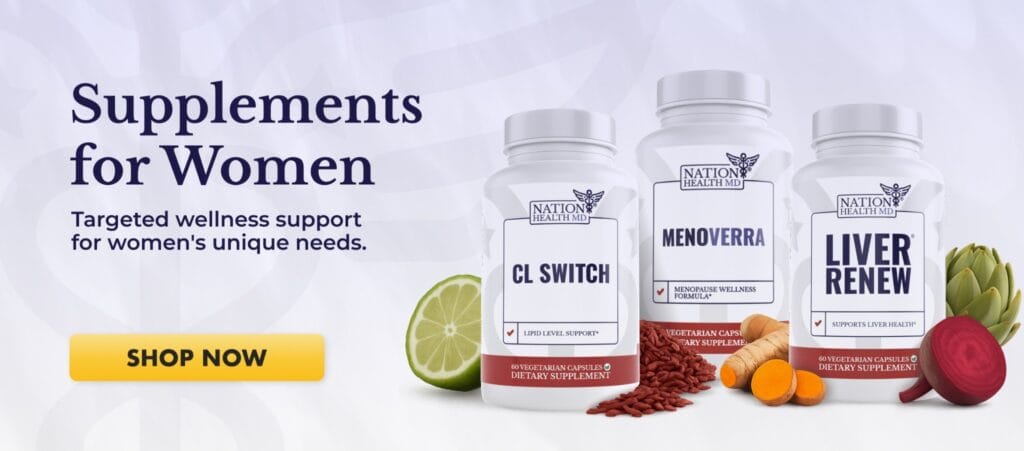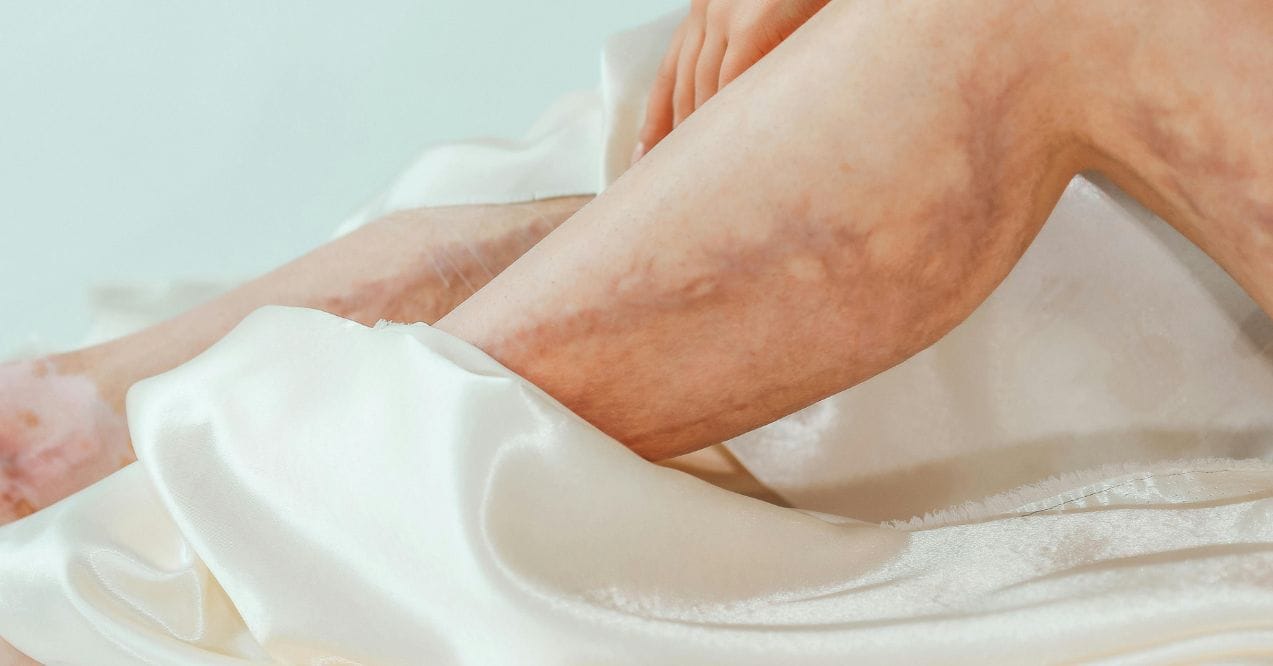What Causes Veins To Be More Visible In Arms?
Medically reviewed by our experts


Have you ever looked at your arms or hands and noticed that your veins seem more visible than usual? This is a common experience that many people share, and it can naturally raise questions. You might wonder what causes veins to be more visible in arms and whether it’s something to be concerned about.
In this article, we’ll explore the most common reasons, key risk factors, and supportive options available to address this visible change.

What Causes Veins To Be More Visible In Arms?
Many people notice veins to be more visible in their arms due to natural body changes or external factors. This is often completely normal and usually not a cause for concern. Several common reasons can explain why veins appear more noticeable, including:
- People with lower body fat often have more visible veins because there is less tissue covering them.
- As skin becomes thinner with age, it can make underlying veins easier to see.
- Warm temperatures can cause blood vessels to expand (dilate), making them appear closer to the skin’s surface.
- Exercise increases blood flow, which can make veins stand out more temporarily.
Key Risk Factors That Make Veins More Visible
Several factors can make veins more visible in arms, and most are part of natural body changes or lifestyle patterns. Common risk factors include:
| Risk Factor | How It Makes Veins More Visible |
| Aging | Thinner skin and reduced elasticity can reveal veins underneath. |
| Genetics | Some people naturally develop more visible veins based on family traits. |
| Low Body Fat Percentage | Less fat under the skin exposes veins, making them easier to see. |
| Increased Blood Pressure | Can cause veins to expand and appear more noticeable. |
| Hot Weather | Heat dilates blood vessels, making veins temporarily more visible |
| High Levels of Physical Activity | Boosts circulation and can lead to prominent veins, especially in the arms. |
Note: It’s common for athletes to have prominent veins due to their high activity levels and low body fat.
When To Seek Medical Attention
In most cases, visible veins in the arms and hands are not a cause for concern. However, there are times when noticeable changes in your veins may require closer attention. It’s important to monitor for specific warning signs, such as:
- Sudden vein bulging
- Painful veins
- Redness, swelling, or signs of inflammation
These changes could indicate a potential issue with blood flow. In some cases, visible veins may be linked to superficial thrombophlebitis, a condition where a vein near the skin’s surface becomes inflamed and may feel firm or tender. Another possible concern is deep vein thrombosis, which involves a deeper vein and can increase the risk of developing a blood clot.
If you experience discomfort, sudden changes, or symptoms like swelling, it’s best to seek medical evaluation. These could be early signs of a blood clot that should not be ignored. Paying attention to your body’s signals can help you stay proactive and support your overall vein health.
Treatment Options for Prominent Veins
For those who wish to address the appearance of visible veins, there are several minimally invasive treatment options available. These procedures focus on improving the look of surface veins without the need for major surgery.
Two commonly used methods include:
- Ambulatory Phlebectomy – This procedure removes small surface veins through tiny skin punctures. It is performed under local anesthesia and typically leaves minimal scarring.
- Radiofrequency Ablation – This technique uses heat from radiofrequency energy to gently close off targeted veins, causing them to shrink and become less visible over time.
Both treatments aim to reduce the appearance of surface veins while supporting overall circulation. However, it’s important to remember that these options are usually considered cosmetic and may not be necessary for vein health.
Daily Habits To Support Vein Health
Simple lifestyle choices can go a long way in supporting healthy blood vessels and maintaining good circulation, especially in your hands and arms. Building these habits into your daily routine may help promote long-term vein health and overall comfort.
Here are practical tips to consider:
- Stay Hydrated – Drinking enough water helps keep your blood flowing smoothly and supports vein function.
- Move Regularly – Regular movement, including stretching and light exercise, encourages healthy blood flow in your hands and arms.
- Avoid Sitting or Standing for Long Periods – Staying in one position can slow circulation. Try to take short movement breaks throughout the day.
- Maintain a Balanced Weight – A healthy weight supports proper circulation and reduces pressure on your veins.
- Protect Skin from Excessive Sun Exposure – Overexposure to the sun can weaken skin and affect the appearance of veins over time.
In addition to daily habits, adding targeted nutritional support can further help maintain healthy veins and circulation. VeinRenew offers a natural solution that complements your lifestyle and supports vein health from within. This carefully crafted formula is especially beneficial for those looking to support visible veins on the legs, which can sometimes bring uncomfortable sensations if left unaddressed.
VeinRenew contains powerful ingredients like Horse Chestnut, Rutin, and Micronized Citrus Flavonoids – nutrients known for promoting vein strength and flexibility. It’s also a thoughtful choice among supplements for women who want to prioritize vein health in their daily routine.
Hot Weather and Blood Vessel Visibility
Hot weather can naturally cause blood vessels to expand, or dilate, which makes veins more noticeable, especially in the arms and hands. This happens because the body works to release heat by bringing more blood to the surface of the skin. As a result, many people notice visible hand veins becoming more pronounced on warm days.
This is usually a normal and temporary response. Once your body cools down, the veins often return to their usual appearance. Activities like staying indoors, using cool water, or resting in a shaded area can help the body regulate temperature and reduce vein visibility.
Conclusion
Understanding what causes veins to be more visible in arms can offer peace of mind. In most cases, visible veins are a natural result of body composition, hot weather, or physical activity. While usually harmless, sudden changes, discomfort, or swelling should be checked by a medical professional. Supporting vein health through daily movement, proper hydration, and mindful lifestyle choices can help maintain healthy circulation and overall vein appearance.
During exercise, blood flow increases to deliver oxygen to your muscles, causing your veins to expand and appear more prominent. This is a natural, temporary response and is especially noticeable in people with low body fat.
Visible veins are usually harmless, but in some cases, they may signal circulation issues or conditions like superficial thrombophlebitis or deep vein thrombosis. If you notice sudden changes, pain, or swelling, it’s best to seek medical evaluation.
No, visible hand veins typically don’t require treatment. They are often a natural result of aging, body composition, or physical activity. Treatment is usually only considered for cosmetic reasons or if accompanied by discomfort or other concerning symptoms.
Hot weather causes blood vessels to expand to help cool the body. This expansion makes veins appear closer to the skin’s surface, especially in the hands and arms. The visibility usually decreases once the body temperature returns to normal.
Some treatments, like ambulatory phlebectomy or radiofrequency ablation, can provide long-lasting results for treated veins. However, new veins may become visible over time, so ongoing care and daily habits are important to support overall vein health.
Popular Articles
Advertisement. This site offers health, wellness, fitness and nutritional information and is designed for educational purposes only. You should not rely on this information as a substitute for, nor does it replace, professional medical advice, diagnosis, or treatment. If you have any concerns or questions about your health, you should always consult with a physician or other health-care professional. Do not disregard, avoid or delay obtaining medical or health related advice from your health-care professional because of something you may have read on this site. The use of any information provided on this site is solely at your own risk.





